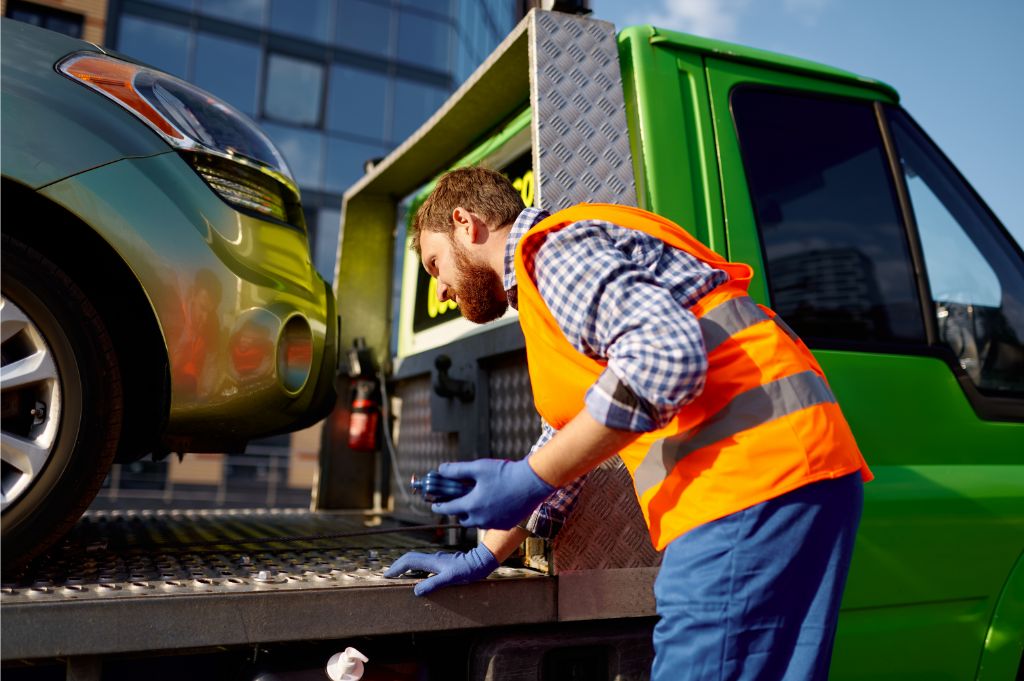
Long Distance Towing – G-man Towing
Towing a vehicle over a long distance can be a challenging task that requires careful planning and preparation. Whether you’re moving to a new location or embarking on a road trip with a trailer in tow, ensuring your vehicle is properly prepared is essential for a safe and stress-free journey. In this article, we will explore key considerations for preparing your vehicle for long distance towing, focusing on the importance of maintenance, safety measures, and essential equipment.
Maintenance Checks
Before hitting the road for a long-distance tow, it is crucial to conduct a thorough maintenance check on your vehicle. This will help identify any existing issues and prevent potential breakdowns during your journey. Here are some important maintenance tasks to prioritize:
- Engine and Fluids: Check the engine oil, transmission fluid, brake fluid, and coolant levels. Ensure they are at the appropriate levels and replace or top them up as needed. An overheated engine or transmission failure can lead to expensive repairs and delays.
- Brakes and Tires: Inspect the brake pads and rotors for wear and tear, as well as the tire tread depth and tire pressure. Properly functioning brakes and well-maintained tires are critical for safe towing.
- Battery and Electrical Systems: Confirm that your vehicle’s battery is in good condition and fully charged. Check the electrical connections, including the trailer hitch wiring, to ensure all lights, turn signals, and brake lights are functioning correctly.
- Suspension and Steering: Inspect the suspension components, such as shocks and struts, for any signs of damage or excessive wear. Ensure that the steering is responsive and aligned correctly.
- Cooling System: Check the radiator and hoses for leaks or cracks. A well-functioning cooling system is vital for preventing engine overheating during long distance towing.
Weight Distribution and Payload
Proper weight distribution is crucial for maintaining stability and control while towing. Overloading or unevenly distributing the weight can lead to dangerous situations on the road. Consider the following guidelines:
- Gross Vehicle Weight Rating (GVWR): Know your vehicle’s GVWR, which is the maximum weight it can safely handle, including the weight of the vehicle, passengers, cargo, and trailer tongue weight.
- Tongue Weight: Ensure the tongue weight, the downward force exerted on the hitch ball by the trailer, falls within the recommended range. Typically, the tongue weight should be around 10-15% of the total trailer weight.
- Load Distribution: Distribute the load evenly inside the trailer to maintain stability. Secure all items properly and avoid overloading any particular side.
Trailer and Hitch Compatibility
Matching your vehicle with a compatible trailer and hitch system is crucial for safe and efficient towing. Consider the following aspects:
- Hitch Class: Determine the appropriate hitch class for your vehicle based on its towing capacity. Class I hitches are suitable for light loads, while Class IV and V hitches are designed for heavier trailers.
- Trailer Coupling: Ensure that the trailer coupler matches the size of your hitch ball and that it is securely attached. Test the connection to verify that it engages and locks properly.
- Safety Chains and Brake Controller: Attach safety chains between the trailer and the tow vehicle to provide an additional layer of security. If the trailer has brakes, equip your vehicle with a brake controller to ensure effective braking.
Towing Accessories
To enhance safety and convenience during long distance towing, there are several essential accessories to consider:
- Mirrors: Install extended side mirrors or towing mirrors to improve visibility and eliminate blind spots. This is especially important when towing wider trailers.
- Trailer Brakes and Breakaway System: If your trailer is equipped with trailer brakes, ensure they are in good working condition. Trailer brakes provide additional stopping power and can help prevent excessive wear on your vehicle’s brakes. Additionally, a breakaway system is highly recommended. It activates the trailer brakes automatically if the trailer becomes disconnected from the tow vehicle, helping to prevent runaway trailers.
- Weight Distribution Hitch: Consider using a weight distribution hitch if you’re towing a larger trailer. This type of hitch helps distribute the weight more evenly across the vehicle and trailer, improving stability and control.
- Tire Pressure Monitoring System (TPMS): Invest in a TPMS for your vehicle and trailer. This system constantly monitors tire pressure and alerts you to any significant deviations. Proper tire inflation is crucial for safe towing, as underinflated tires can overheat and lead to blowouts.
- Extended Mirrors: If your vehicle’s standard mirrors do not provide adequate visibility when towing, consider installing extended mirrors or towing mirrors. These mirrors offer a wider field of vision, allowing you to see the sides and rear of your trailer more effectively.
Plan Your Route and Take Breaks
When embarking on a long distance towing journey, it’s important to plan your route in advance. Take into account the road conditions, inclines, and any potential low-clearance areas that may pose a challenge. Additionally, identify rest stops along the way where you can take breaks, stretch your legs, and ensure both you and your vehicle are in good shape for the remainder of the journey.
During breaks, check your trailer and vehicle for any signs of damage or wear. Pay attention to the tires, inspect for leaks, and make sure all connections are secure. Taking the time to perform these quick inspections can help catch any issues early on and prevent them from escalating into larger problems.
Practice Safe Driving Techniques
When undertaking long distance towing, it’s crucial to practice safe driving techniques to ensure the safety of yourself, your passengers, and other road users. Consider the following tips:
- Maintain a safe and consistent speed. Avoid sudden acceleration or braking, as it can cause instability in the trailer.
- Increase your following distance. Towing a trailer requires a longer stopping distance, so allow for extra space between your vehicle and the one ahead of you.
- Use your turn signals well in advance to provide ample warning to other drivers.
- Be mindful of the width and length of your trailer, especially when changing lanes or navigating through narrow spaces.
- Remain attentive to weather conditions and adapt your driving accordingly. High winds, heavy rain, or snow can impact your vehicle’s stability when towing.
Conclusion: Long Distance Towing
Preparing your vehicle for long distance towing is a critical step to ensure a safe and successful journey. By performing thorough maintenance checks, distributing weight properly, ensuring compatibility between your vehicle and trailer, and equipping essential towing accessories, you can significantly reduce the risk of breakdowns and accidents. Remember to plan your route, take regular breaks, and practice safe driving techniques to enhance your overall towing experience. By following these key considerations, you can embark on your long distance towing adventure with confidence and peace of mind.
G-Man Towing: Your One-Stop Solution for Professional Vehicle Recovery Services
Are you searching for a dependable, customer-centric solution for your vehicle recovery needs? Say no more. G-Man Towing and G-Man Auto Repair are ready and equipped to come to your aid. We offer more than just towing services; we’re your one-stop shop for all professional vehicle recovery services, ensuring you get back on the road with minimal disruption.
What sets G-Man Towing apart is our unwavering commitment to your safety, our dedication to ensuring customer satisfaction, and our consistent availability anytime you need us. Stay prepared and lessen the stress of unexpected vehicular mishaps by keeping our number, (214) 909-6622, on speed dial.
The next time a roadside emergency hits, or you find yourself typing “tow truck hire near me” into a search engine, remember you’ve already got a reliable contact in G-Man Towing.
Choose G-Man Towing for professional vehicle recovery services that genuinely put your needs first. We’re here to provide reassurance and assistance when it matters the most. Reach out and contact us and experience the G-Man Towing difference.

